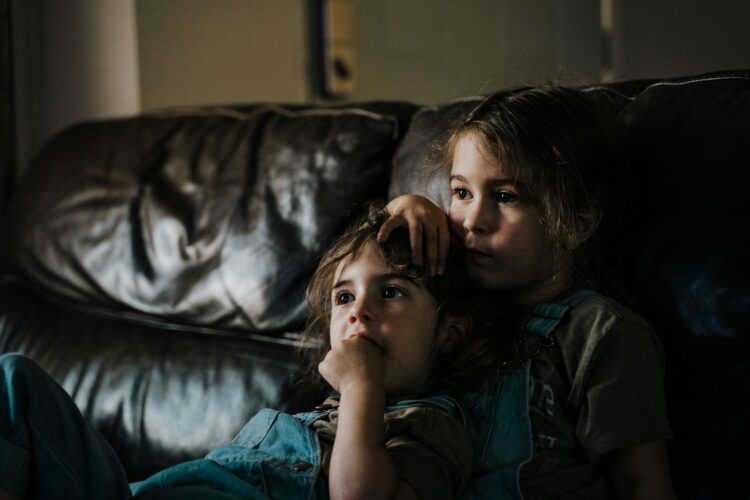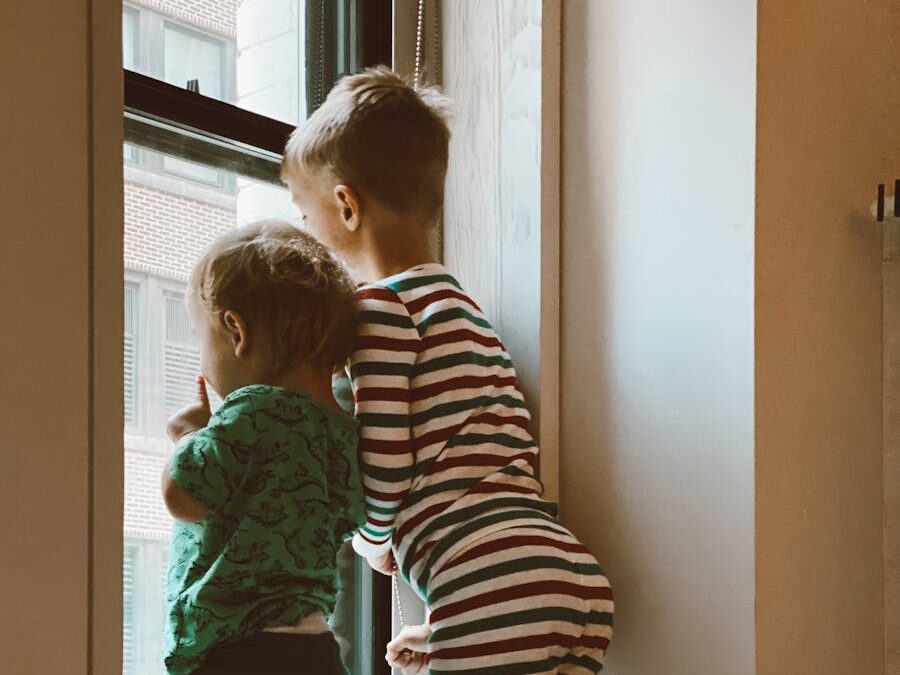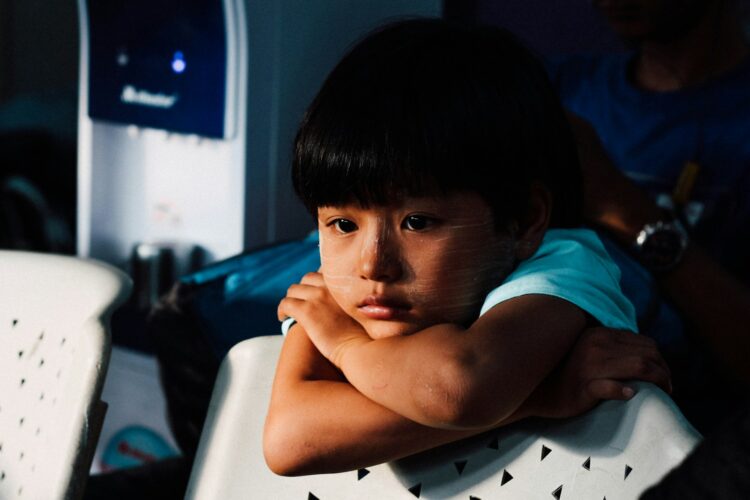
Parental favoritism is one of the hardest dynamics to experience within a family. It’s rarely admitted openly, yet children feel it in ways that leave lifelong marks. Whether through tone, time, or attention, kids notice when one sibling is treated with more warmth, recognition, or patience than another. Here are 15 telling signs that favoritism is present.
Unequal Praise

One of the most obvious signs of favoritism is when praise is distributed unevenly. If one child’s smallest accomplishments are showered with excitement while another’s achievements go unnoticed, the imbalance becomes deeply felt. The favored child learns that their efforts bring pride, while the other begins to believe nothing they do is good enough.
Different Rules for Each Child

When two children live under different sets of rules, favoritism becomes hard to ignore. If one child is granted later curfews, easier punishments, or fewer household responsibilities, while another faces strict boundaries, the difference sends a clear message: one is trusted, the other is not. This inconsistency doesn’t just cause anger in the moment — it creates a pattern where one child is seen as capable and the other as flawed.
More Physical Affection for One Child

Affection communicates love more strongly than words. When one child receives more hugs, more touches on the shoulder, or more time on a parent’s lap, while another is left out, the difference feels like rejection. Even subtle variations, like a warmer smile for one, a quicker hug for the other, are felt deeply by children. While the favored child grows secure in knowing they are cherished, the overlooked child may quietly wonder why they aren’t as lovable.
Playing Favorites in Conversations

Parents often bring up their children in conversations with relatives, teachers, or friends. But if one child’s accomplishments dominate every story while the other’s achievements are rarely mentioned, favoritism becomes clear. The “golden child” is given a spotlight, while the overlooked child is erased from the narrative. This lack of recognition leaves the less-favored sibling feeling invisible, as if their life events don’t matter.
Unequal Emotional Support

Children don’t just need love when they succeed; they need it most when they fail or struggle. Favoritism shows when one child’s mistakes or pain are met with patience and understanding, while another’s are dismissed with “stop whining” or “toughen up.” This double standard teaches one child that their feelings are valid, while the other learns that vulnerability is unsafe. The overlooked child often grows up suppressing emotions, believing they’re burdensome or weak.
More Financial Investment in One Child

Finances reveal values. If parents consistently spend more on one child’s activities, education, or lifestyle, while cutting corners with the other, favoritism is hard to deny. This doesn’t always mean lavish spending; sometimes it’s subtle, like buying one child brand-new clothes while the other gets hand-me-downs. The overlooked child notices these differences, even if parents insist resources are limited. They grow up equating money with love and priority, believing their dreams are less worthy of investment.
Constant Comparisons

Few things cut deeper than being constantly compared to a sibling. Phrases like “Why can’t you be more like your brother?” or “Your sister never gave us this trouble” carve wounds that last for decades. Comparisons don’t inspire improvement — they communicate inadequacy. The favored sibling becomes the standard, while the other is cast as the perpetual disappointment. This creates sibling rivalry and resentment that often lingers long into adulthood, straining relationships between brothers and sisters.
Different Consequences for Similar Mistakes

Children pay close attention to fairness. If one child’s mistake is brushed aside with a gentle reminder while another’s identical slip-up results in punishment, the imbalance is unforgettable. It teaches one child that they’re allowed to be human, while the other must be perfect. Eventually, the “unlucky” sibling may either rebel out of frustration or bend over backwards to meet impossible standards.
More Involvement in One Child’s Interests

Support is measured in presence. When parents attend every game, recital, or event for one child but make excuses for another’s, favoritism becomes undeniable. Children don’t just want applause — they want to know their passions matter. When one child’s interests are prioritized and the other’s are sidelined, it communicates whose joy is worth the effort. Over time, the overlooked child may stop sharing their passions, convinced no one cares.
Allowing One Child to Dominate

Some parents let one sibling’s louder voice, stronger personality, or constant needs overshadow the others. The favored child becomes the “star,” while quieter siblings fade into the background. This favoritism doesn’t just affect the overlooked child; it shapes family dynamics, teaching everyone that one person’s needs always come first. For the ignored sibling, the message is clear: to belong, they must stay small.
Subtle Tone Differences

Favoritism often shows up in the smallest ways — like tone of voice. If one child is spoken to gently while another is met with irritation or impatience, the difference cuts deep. Children may not understand why, but they feel it. The overlooked child often becomes hypersensitive to tone, learning to anticipate criticism before it comes.
Defensiveness Toward the Favorite

Parents sometimes defend one child fiercely while being quick to criticize the other. If a teacher, relative, or friend mentions the favored child’s flaws, parents rush to excuse them. But if the less-favored child slips up, parents amplify the criticism instead of protecting them. This double standard teaches one child that their flaws are forgivable, while the other feels their mistakes define them.
Unequal Access to Parents’ Time

Time is love made visible. When one child gets more quality time, while the other is consistently brushed aside, favoritism becomes obvious. Even if parents claim they’re “too busy,” children notice who gets priority. The overlooked child often grows into an adult who struggles with feeling valued in relationships, because they learned early that their presence wasn’t enough to earn attention. Unequal time quietly communicates unequal love.
Parents Relying More Heavily on One Child

Favoritism doesn’t always mean more freedom — sometimes it shows up as unfair responsibility. Parents may lean on one child for emotional support, chores, or caretaking while the other is shielded. While it looks like “trust,” it often feels like an invisible burden. The responsible child may feel resentful, wondering why they had to grow up faster while their sibling was allowed to stay carefree.
Sibling Rivalry Fueled by Parents

Sibling rivalry doesn’t always start with the kids — often it’s fueled by favoritism. When one child is consistently praised while the other is criticized or compared, siblings stop seeing each other as allies and start competing for scraps of approval. The favored child feels pressure to maintain their “golden” status, while the other feels perpetually unseen. This rivalry can last well into adulthood, with siblings carrying quiet resentment toward each other for dynamics they didn’t create.

